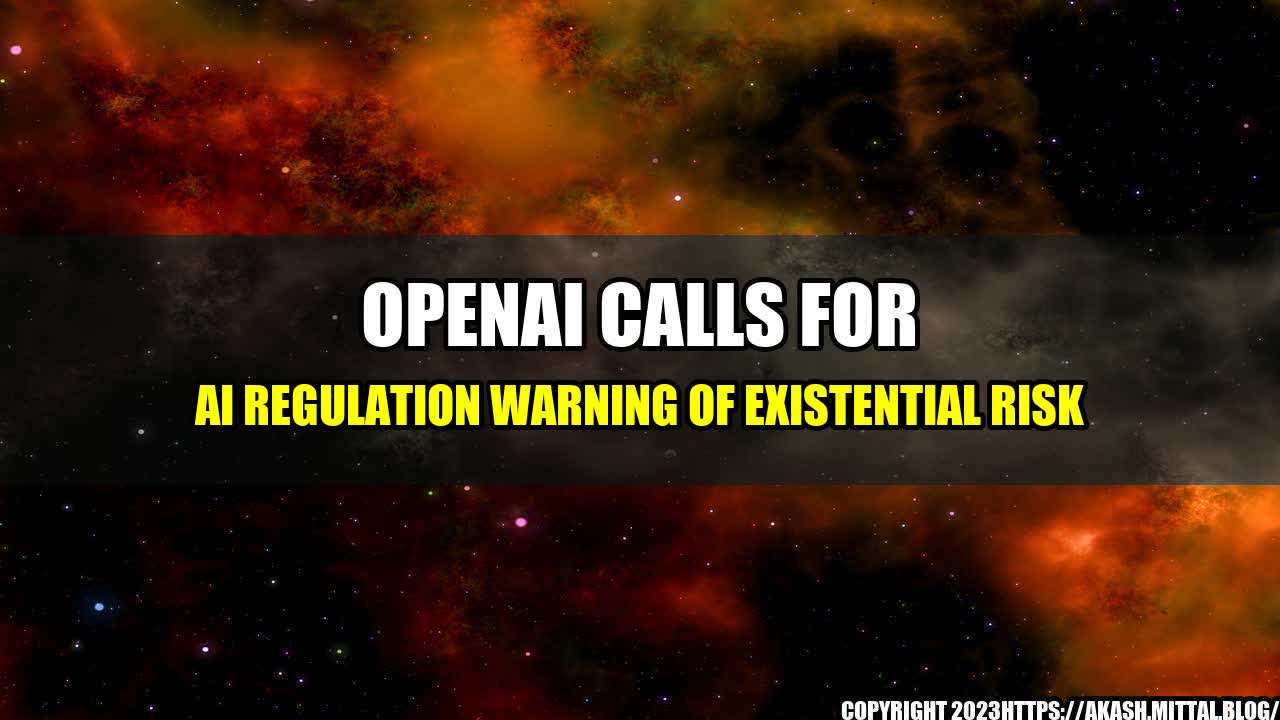
It was a regular day in the office, when the senior executives of OpenAI came across a news report about a robot killing a worker in a factory. They were horrified and immediately began thinking about the vast potential for catastrophe that could arise in the rapidly advancing field of AI technology. The executives realized that they needed to speak out about the dangers of AI and the need for urgent regulation. Thus began their campaign to warn the world about the existential threat posed by artificial intelligence.
The warnings of OpenAI have come as a wake-up call for the tech industry and policy makers. The organization, which was founded by some of the most prominent figures in the tech industry, has raised concerns about the ease with which sophisticated AI systems can be manipulated to cause harm.

OpenAI has highlighted the risks that AI systems pose in a number of different contexts. Some of the most concerning examples include:
These risks are not just theoretical. There have already been numerous examples of AI being used for malicious purposes. For example, in 2016, a chatbot developed by Microsoft called Tay was hijacked by trolls and trained to spew hateful speech on Twitter. More recently, deepfake technology has been used to spread political misinformation and undermine trust in public institutions.
Another example of the dangers of AI is the use of autonomous weapons. These are weapons that can operate without human intervention, relying instead on AI algorithms to make decisions about who to target and when. The potential consequences of such weapons falling into the wrong hands are truly terrifying.

Given the potential dangers of AI, OpenAI and other organizations are calling for urgent action to regulate the use of AI systems. The aim is not to stifle innovation but to ensure that the technology is developed in a safe and responsible way that minimizes the risks to human life and society as a whole.
Regulation of AI can take many forms. It could involve measures such as:
These are just some of the ways in which regulation could help to mitigate the risks of AI. The goal is to create a regulatory environment that encourages innovation but also ensures that the technology is developed and used in a way that benefits humanity as a whole.
The warnings of OpenAI and other organizations underline the urgent need for regulation of AI. The potential risks posed by artificial intelligence are significant, and without appropriate measures being put in place, the consequences could be dire.
There is no doubt that AI has the potential to revolutionize the world in many positive ways. However, we need to be careful that we don't let the technology run away from us, with potentially devastating consequences. By regulating AI in a responsible and proactive way, we can ensure that we harness its power for good, rather than letting it become an existential threat to humanity.
So, let's take action today to ensure a safer tomorrow.
Curated by Team Akash.Mittal.Blog
Share on Twitter Share on LinkedIn